
Uprising: Balancing Controlled Shots and Magic Miracles with Andzej Gavriss
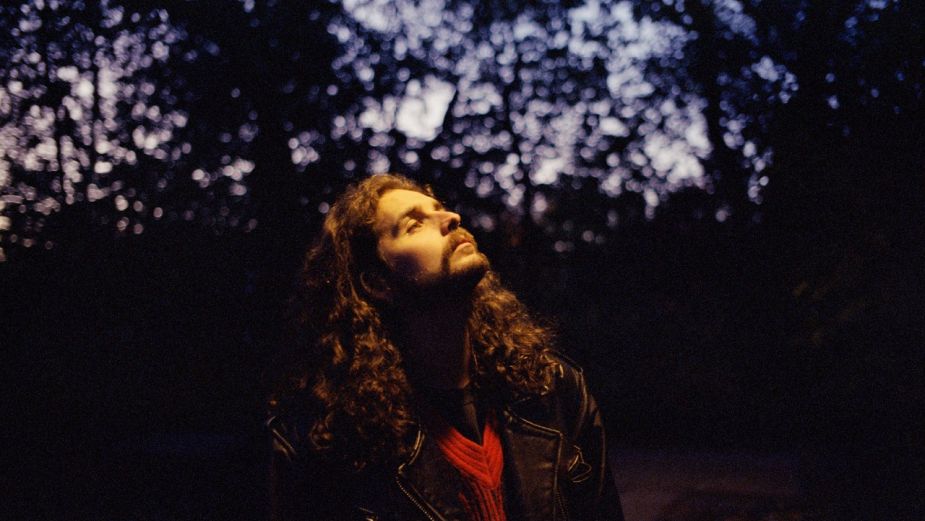
Ambassadors, the Dutch creative studio with offices in Amsterdam and New York, has partnered with Little Black Book to sponsor the Uprising Channel. The channel gives a voice to important talent in the industry who often don't get the opportunity to share their thoughts and opinions, as this is something often reserved elsewhere for c-suite executives only. Ambassadors’ support means that the industry’s top talent will have an even louder voice on LBB’s global platform.
--
Andzej Gavriss is a multi award-winning director originally hailing from Latvia. Graduated from the University of Audio Visual Arts in 2015, the director has already cultivated a strong body of work that showcases his incredible appetite for experimental filmmaking. Andzej's work has won a GOLD for Director of the year at Shots Awards 2021, Grand Prize at CLIO, GOLD for Direction at CLIO, Silver at Cannes Lions and more. He has also been nominated several times at Camerimage, Ciclope, Raindance, UKMVA, Kinsale Sharks, Epica Awards, Eurobest, Berlin Commercial Festival, Staff Pick, BMVA, NIFF, Lift-Off Los Angeles and other festivals. The distinctly stylised portfolio combines beautifully crafted shots with storytelling that packs a punch. Andzej is a keen traveler, now based between LA and Berlin and shooting projects internationally.
He spoke with LBB’s Ben Conway for Ambassadors’ Uprising series, revealing all about his childhood in post-Soviet Latvia, hustling as an independent young director and using his obsessive personality to his advantage.
LBB> Tell us a little bit of background! How did you discover filmmaking?
Andzej> I was named after Polish film director, Andrzej Wajda. When I was about four years old my grandma's neighbour took a photo of me on his old Zenit camera. The shape of the camera and its shining lens hypnotised me. Not being sure what the object was even for, I knew someday I had to have one.
One day my friend showed me Spike Jonze's Yeah Right, people floating in the air, skaters breaking through walls, the film just blew me away. I realised that not only can you document reality, you can create your own. So then I started experimenting with puppetry, stop motion and practical effects. At the age of 13 I directed my first half an hour film with floating skateboards, pyrotechnics and many other abstract elements. From this moment on, the camera became my best friend. I started shooting music videos for local bands and short films.
It all started changing when my dad brought home a video camera. I became obsessed. I was documenting everything that was in front of my eyes. All that put me on a path of creating worlds from an early age. I started editing my films at the age of 13 using Movie Maker. The program was so unstable that after one of my projects, which I spent months working on, crashed, I realised I needed to step the game up and learn how to work in Adobe Premiere and After Effects. When I was not shooting or editing I was doing all kinds of sports, mainly skateboarding and Thai Boxing.
LBB> How would you describe your cultural background and what impact does that have on your outlook?
Andzej> I was born in the ‘90s in Latvia, right at the end of the Soviet Era, in a grey blockhouse, surrounded by the same blockhouses. It felt pretty much like living in a box. I always felt confined by the massive grey walls. My subconscious was blocking the reality that I was surrounded by and the only escape that my mind offered was imagination, a fantasy of my own, more exciting world. It was a gift that came with consequences. My parents were told that I was loopy and slow, and in my early school years I was always considered to be a dumb boy.
My dream was to become a pro skater. In the 90s we did not have any indoor skateparks in Eastern Europe, so with the first snow, the skate season was over. This did not really satisfy me and my ambitions. First thing in the morning I was out shovelling snow and later practicing tricks til late in the evening. I have an extremely ambitious and obsessive personality, most of the time it drives me nuts. At some point I thought that there is something wrong with me. This intensity definitely helped me to become a better Director but there was no balance at all.
Over the last few years I started slowly learning how to deal with it. Even now, writing this interview, I am on my first vacation in three years and I’m so happy that I managed to let go during the first week. I stoped thinking about future plans, let go of my ego and simply started to enjoy life. Yet, I managed to finish the treatment for my feature film, started storyboarding two of my passion projects and did a few interviews. I thought of obsessiveness as a curse, but if you handle it, it becomes a tool.
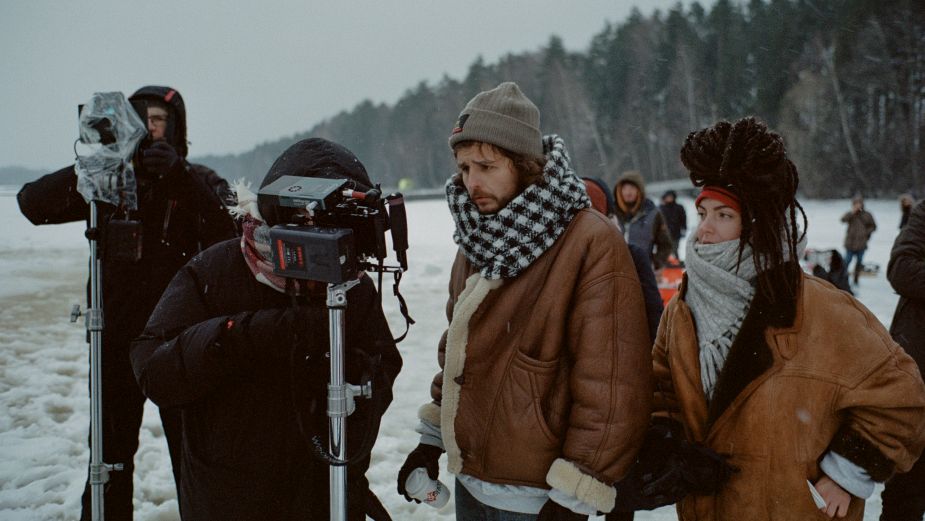
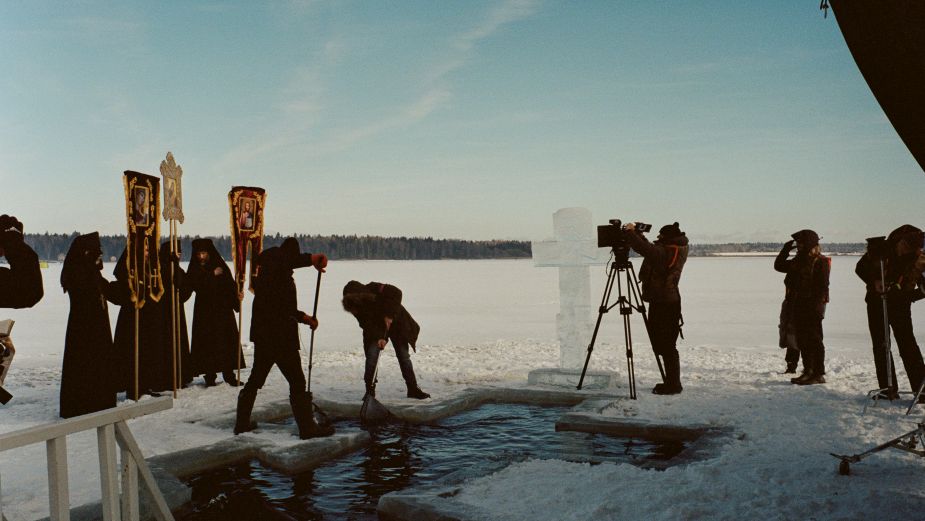
LBB> Did you go to college – if so what did you study? And how did you find that experience?
Andzej> By the time of my final year at school, the DSLR HD cameras were announced on the market. It was revolutionary, in order to step the game up, I had to get one. In 2009 there was a massive crisis in Latvia. 100.000 people moved to the UK in search of a better life, so I took all of my savings, which at that time was 100 euros, and went on the journey to earn money for my desired HD camera. 100 euros did not seem like a great budget for London. After a year of living really rough, I saved enough money to buy the camera I wanted and moved back to Latvia.
I rented out a small studio and started building mini-sets. After a few years we moved to a huge 1,000 square meter space and continued building and experimenting with visuals. At some point I entered the University of Media Arts, despite already having a good amount of film history and technical knowledge.
There, I learned how to hustle. I decided not to wait for an opportunity to knock on my door. I asked the marketing department to arrange a meeting with the university rector and to my surprise, they did. I pitched an idea of me shooting a fresh promo for the art faculty. The idea was quite unique and impressed the rector. Without hesitation she gave me the green light. With the help of my classmates and gear that the university provided, I shot a promo which turned out to be quite impressive at that time. This project led to a great friendship with the university management and more interesting projects.
LBB> Was your first job in the industry or did you try something else out first?
Andzej> As long as I can remember, I was a rebel that wanted to be independent. So I started doing small jobs at a really early age. A lot of the kids on my block were working on weekends. The times were different, we were all broke after the Soviet Union collapsed. My first job was lifting boxes in a warehouse at the age of 13. They paid us four euros per day. There was no time limit, just the amount of work that needed to be done. After that I did a ridiculous amount of jobs, all kinds. My favorite one was working as a rickshaw driver. Driving drunk tourists around beautiful medieval Old Riga, I made around 300 euros per night. It was so much fun, getting ridiculous amounts of money for a great cardio workout.
LBB> How did you first get into the industry?
Andzej> There were not too many options in Latvia back in the day. The market was a monopoly, a small group of people were doing jobs for the same clients over the last 20 years. I could have been an assistant to some director for 10 years and then maybe I would have my chance to shine. I chose the opposite. I started my small company and approached clients directly.
At the age of 21, I probably looked like a 16 year old kid - no one took me seriously. I got on the phone with a massive chips company and arranged a meeting. I was so happy that they seemed interested in knowing more about my original idea for their commercial. I got in the conference room with the company owner and a few executives. After the presentation, they looked at me with a sarcastic smile and gave me a box full of chips as a complimentary gift, as if I was pitching them my elementary school project idea. They said they would call me back, but of course they did not. When I got back home, I opened a bag of chips and started dreaming about having a beard. I desperately wanted to look older. I thought maybe then people would start taking me seriously.
I never gave up. I was knocking on doors just like an American salesman in movies from the ‘90s. I was obsessed with proving them wrong and getting this one opportunity that would change everything. After a lot of practice I got great at pitching my ideas. Of course, entering the conference room I always got funny smiles from the executives, but after 15 minutes they started forgetting about my age and listening to my ideas. When I was done with the pitch, I gave all of them a confident handshake. Later, one company called me back and that's pretty much how I got my first job in the industry.
I was hammering away on my craft day and night and the best thing about this profession is that there is no limit to how much you know.
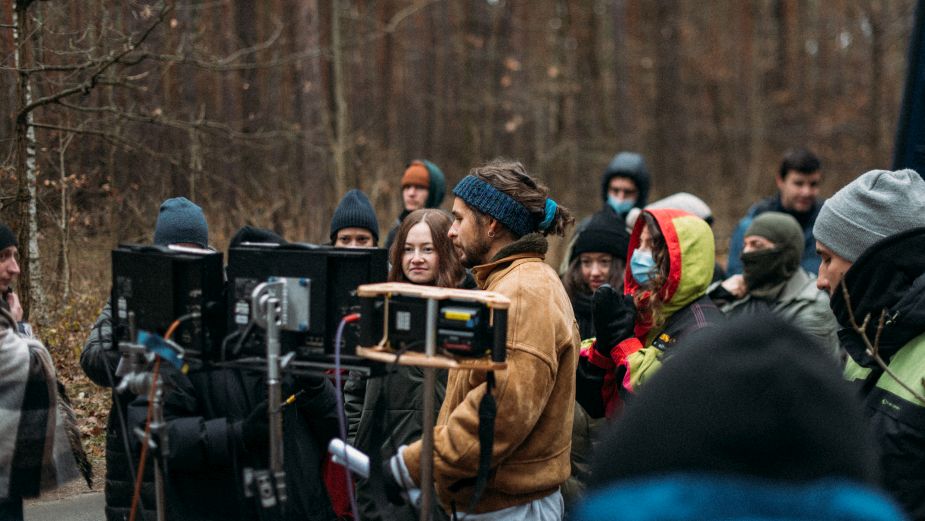
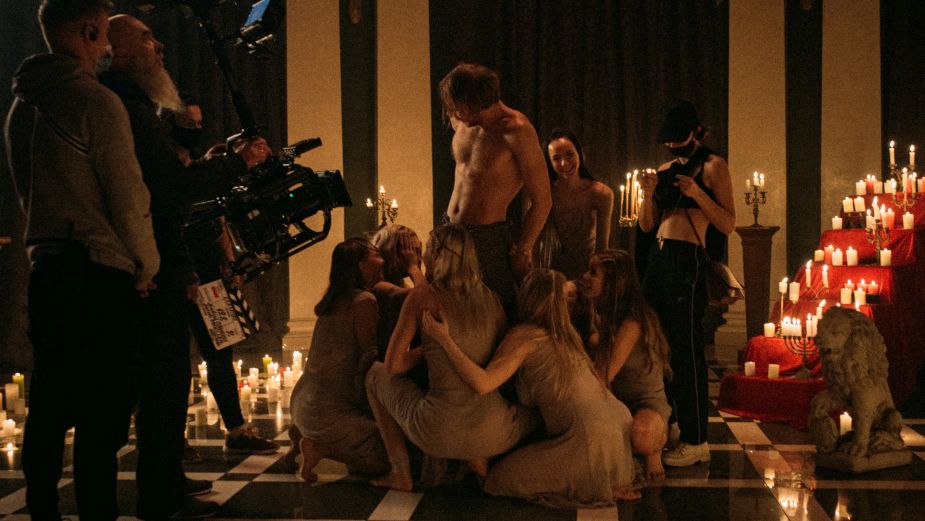
LBB> What was the most useful lesson you learned in the early days of your career?
Andzej> To be as prepared as possible. I like to spend a good amount of time doing my homework and then letting go - not over-controlling - surfing the wave of problems which occur on set. I think that there should be a fine balance of controlled shots and magic miracles that you capture on set. A storyboard is like a Bible. You will get the best out of it if you start interpreting, not blindly worshiping.I don't want my films to look overly rehearsed, but knowing what you want is the key.
LBB> What was your first professional project and what was a project that you felt really changed your career?
Andzej> Doing a commercial for Expo was quite thrilling. It was a challenging ride, seven shoot days, wild landscapes and a massive crew. After that project I realised I can handle heavy productions. You can't deny the fact that a single project can change one's career. That is one of my favourite parts of our industry. You wake up the next morning, after a premiere and there are a bunch of emails with new opportunities. I think I had a few of these projects that elevated my career. I look at every single one of them as a new step on a massive stairwell that I am climbing. So I would have to say I am on my way up.
LBB> What’s your favourite part of what you do?
Andzej> My main goal in life is to be happy. So I try to find pleasure in every aspect of what I am doing. Sometimes when I don't feel like writing a treatment or doing anything else I remind myself that I am here because I fell in love with directing. To be completely honest, I love storyboarding, being on set and editing. When I am storyboarding, I am just completely lost in the process. You can try so much and if you fail at some point, there is always a solution to the problem.
It's such a precious time while you are on set, I love how focused I get, the world around me disappears and it's only me and the process. I like to call my sets ‘experiences’ and I love to share them with the people I admire and hire for work.
Editing is where you truly figure out the story, every frame has to move the plot forward. I love solving puzzles with my editors, it's always a pleasure.
LBB> And what’s the most challenging aspect for you personally?
Andzej> Production is pretty transparent, it's like gardening. You work a lot, stay focused, solve problems and in the end you get results.
Finding funding for my films was never easy. Sometimes it takes months, sometimes years. It's always a challenging process, and there is no straight path there. I am really grateful for my salesman experience that I had in the beginning of my career, it helps me a lot not to give up.
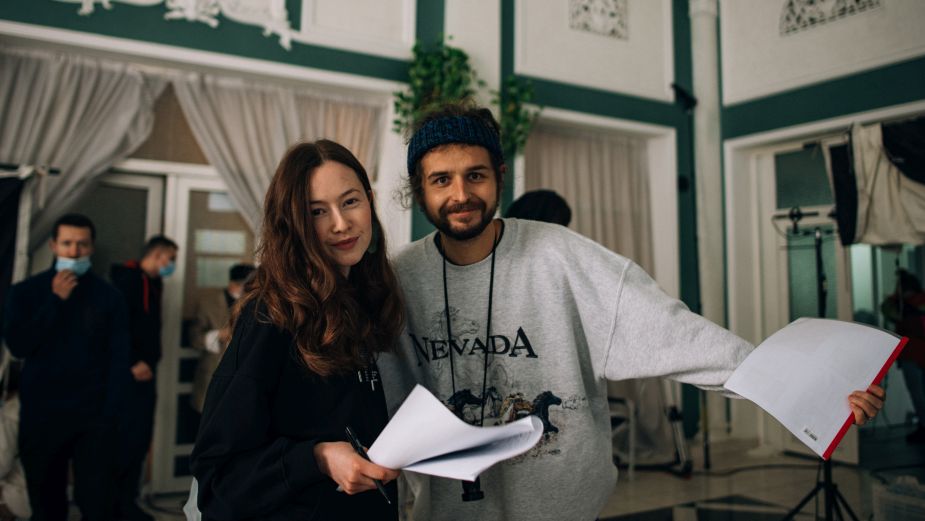
LBB> What do you aspire to achieve in your work?
Andzej> We all want to become better in our craft. That's an essential process with a clear way to grow. You have to be like a sponge and soak up everything around you. Read, watch, experience. Then later apply the new knowledge and your craft will start improving. What we don't want as creatives is for our films to look too technical, too thought out.
What's really important for me is to fill my films with my energy, DNA, soul. I want the audience to feel the vibrations coming from the screen, experience my work and be immersed in the story.
LBB> Tell us about a recent project that involved some interesting creative challenges.
Andzej> We Will Become Better is the first Russian LGBTQIA+ film in years that actually portrays a gay relationship. I grew up in the 90s in Latvia with a complete absence of sex education, where the topic of same-sex relationships was only a subject for gossip, insults and often blackmail and even violence.
Anyone who lived then in the post-Soviet space knows how much society demonised the LGBTQIA+ community. The society unreasonably imposed a stigma of clichés, stereotypes and aggression towards people who just want to love each other without hiding their feelings. Go to work without wearing a heterosexual mask, just hold hands in the park without fear of getting physically injured.
I wanted to break the clichés, stereotypes and talk about pure love. And if the Russian audience feels for the couple, hopefully that can change their minds.
LBB> Looking at the broader industry, what gets you really excited and what gets you frustrated?
Andzej> I like that people have started thinking about the environmental crisis and there are more production companies that are choosing more sustainable ways of producing. It makes me really happy. [What frustrates me is] people in Eastern Europe that work 24 hour shifts on commercial projects, especially in the art department. In most cases, it all comes from bad planning on the agency and production side. I think this has to stop. We have to take more time to talk about burnouts and mental health problems that are occurring because of the industry standards and heavy pitching etc.
LBB> Is there anyone in the industry you particularly look up to or admire – why?
Andzej> I like Ian Pons Jewell, a great, down to earth, honest guy. He takes a lot of time to talk to younger directors and guide them trough their struggles.
LBB> Where are you currently based and how have you found the lockdown experience?
Andzej> Just before Covid hit, I was based in LA. My wife and I flew out to do a job in Berlin and a few weeks later the pandemic happened. We decided to stay in Germany. I consider this to be a lucky coincidence, since spending heavy lockdown in our tiny apartment in Korea Town would have been a nightmare. Overall, the lockdown experience was not bad. I was working and flying out for projects even in heavy lockdown times. I made a decision to avoid following the pandemic news and focused on building a strong immune system by eating clean, doing sports and meditating.
I like Berlin, there is a great sense of freedom mixed with tragic historical monuments that remind you to tolerate love over hate. I think sooner or later we will continue our journey and move somewhere else.
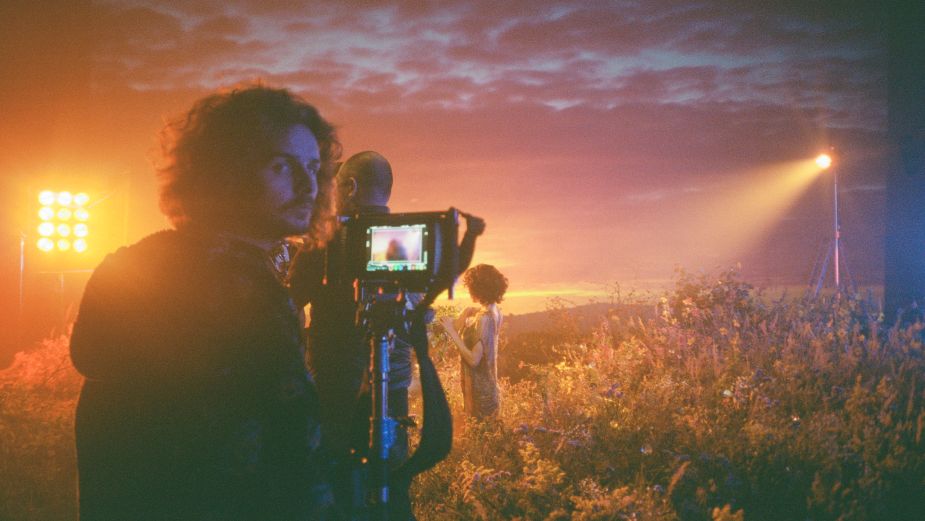
LBB> Outside of work, what do you do to decompress or stay fresh? What are you passionate about?
Andzej> One day, I realised that my brain can't wake up without me scrolling through something on my phone. It really frustrated me and I decided to start cycling first thing in the morning before getting into social media and work. That made a dramatic change in my consciousness, I actually started spending quality time with myself before getting into problem solving.
Since I was a kid, my way of experiencing the world was through pain. I did a lot of Thai boxing and fell almost everyday in the skatepark while learning new tricks. Someone told me about yoga and I said that it's not for me and I would never do it. For the last 4 years I really got into it and my life started changing. I became more calm and grateful. A few days ago I tried air yoga and it was an amazing experience.
I realised about myself, that my obsessive, passionate personality will never change. So, to get out of obsessing over one single thing and driving myself nuts, I need to get into something else on the side and change the subject every month or so. It should not be connected with filmmaking or writing. Right now, I am exploring the world of perfumery. There is so much to learn about the smells and how people make them. Mostly I watch videos of perfume bloggers on YouTube. There are so many amazing channels. It relaxes me and educates me at the same time. Now, I want to go to Paris and smell the all of the fragrances.
When I get bored with that, there is going to be something else. Before perfume, it was sportswear.
LBB> What forms of media and entertainment do you enjoy?
Andzej> Everything. Movies, books, series, art, architecture… I can't get enough. One of my biggest fears is that I will die not experiencing something. I guess that's why I love my job, because doing fun stuff is called research.
One of my passion projects is a short film that makes a statement about drugs, alcohol and objectifying women in modern music videos. I grew up watching MTV and sure there were a few controversial videos each year, but now things are out of control. Kids are getting brainwashed, fake values are being sold. I’ve just had enough of that, I want to make a statement. I’m trying to get it funded.
LBB> What do you think it is that drives and motivates you in work and in your life?
Andzej> I was born with a small David Goggins in my head that screams: “Fucking do it! Succeed! Push, push, push, push!” I never had problems with motivation. The issue was learning how to not blame myself for getting enough rest. One thing I realised, after having a few near death experiences, is that you will remember the good, exciting times in your life and most of them are the simple pleasures that life gives you.













